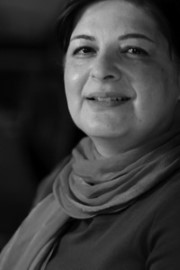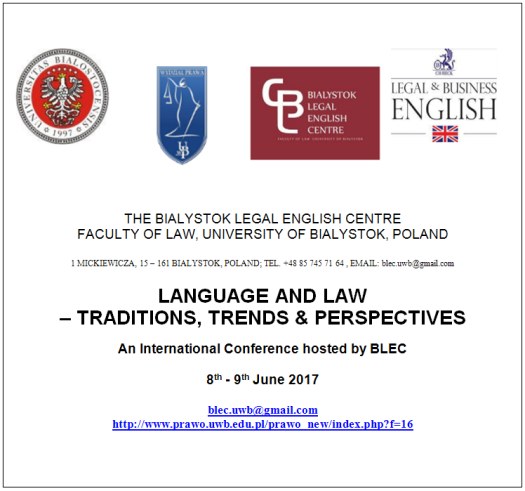Dear HLT Readers,
Welcome to the April issue of HLT. First some Pilgrims news… We hope you have tapped into the Erasmus+ grants, and that the reply you are waiting for will be positive. This will mean we will be able welcome you in Canterbury some time in 2017. Read Pilgrims Courses: CLIL Through Fine Arts. Art Model Project to get a taste of Pilgrims courses. They always involve creative and innovative ideas, challenge and sense of achievement, accommodating new trends in language teaching, as well as fun and humour. Remember there are courses throughout the year as well as special group offers and deals if your school or teachers’ association need a tailored course. Just get in touch with us.
There are also other opportunities for us to meet - in different towns as countries - as there are upcoming conferences and ELT events attended by Pilgrims trainers and staff. The nearest one will be IATEFL Conference in Glasgow, April, 2017. Please look us up. We will be ever so happy to chat to you, brainstorm and make plans.
|

The conference is addressed to teachers of all levels and university students with interests in all educational issues.
The Conference submissions should be full articles - papers: 6-9 pages (including references) in English. This includes coherent articles and original works (literature studies, research, teaching suggestions, pedagogical approaches, teaching methods and practices, teaching aids, teaching materials and ways of exploitation, educational activities, studies, research, organization and administration of education etc.). Each paper may be presented at the conference by one of the authors. But, in case they are not able to do so, after the acceptance of their paper, authors could send a video presentation (Power Point or any video file) with their slides and their speech integrated in them (recorded). This video presentation should last for 10-15 minutes and will be presented at the conference and the paper will be included in the conference's proceedings.
Please submit your full papers via email to: info@eepek.gr
For details, please see the file attached here and http://synedrio.eepek.gr/index.php/en/
From the Coordinating Committee
|
I am also happy to tell you that C Group members will be attending the IATEFL conference - both during the pre-conference Literature SIG event (for more information click here) as well as the main conference itself. I am told that around 40 C Group members will be presenting at the conference. If you want more detailed information about these workshops or talks, come to the Pilgrims stand during the conference and pick up the flyer with all the details. In the meantime you may wish to read a contribution to this issue from Paolo Torresan, a C Group member: Improvisation as a Catalyst for Language Use: Two Activities for Enhancing Oral Communication Skills.
One more thing which saddens us all… We know that our dear colleague David A. Hill will not be joining us at IATEFL this year due to a serious illness. We hope you can respond to the appeal below.
|
Helping David Hill and his Family

Please join the fund raising for David Hill, our dear colleague, teacher, teacher trainer, presenter, writer, performer and poet. He is very ill and has no income. Please take a look and contribute
https://gogetfunding.com/help-our-colleague-david-a-hill/
Dear David, we are thinking of your warmly.
We wish you and your family all the best.
|
This issue is hosted by Mandana Arfa and her colleagues form Uzbekistan. So without further ado I would like to hand over to Mandana, the host editor, who will introduce the issue to you. Dear Mandana, thank you so much for putting such a wonderful issue together; thank you for your hard work and expertise. Working with you has been a pleasure.
Happy reading

Hania Kryszewska
HLT Editor
e-mail: hania.kryszewska@pilgrims.co.uk
Dear HLT Readers,
This issue is mainly devoted to the way English language teaching is viewed by some of those who work in this area in Uzbekistan. I moved to the republic of Uzbekistan less than two years ago and being involved in language teaching for a long time, before moving I tried to study the available information on English language teaching in the country. At the time, I could not find a lot of information. Upon starting my job at Westminster University in Tashkent and also meeting a few other colleagues from other institutions in Uzbekistan, I kept on hoping that at least some insight into what is going on and what is considered a hot topic in the world of English language teaching in Uzbekistan would be more widely published. And then we were offered this opportunity by HLT. Therefore, we would like to sincerely thank Hania Kryszewska, the HLT editor, for all of her support. Here in Uzbekistan, the contributors to this issue are all quite excited to be sharing their studies and experiences with experts worldwide. Obviously, this issue is only a representation of the topics being investigated here. And there are still many other teachers and experts with bright ideas who hopefully will contribute in the future.
Before moving on to introduce the articles here is a very brief introduction about the country. The Republic of Uzbekistan is located in Central Asia and has almost 35 million people. The main languages spoken are Uzbek and Russian. In some regions Karakalpak and in some others Tajik are also widely used. The capital city is Tashkent. Since 1992 Latin alphabet is used for writing Uzbek. In recent years, Uzbekistan has put a lot of emphasis on learning and teaching of English language and many developments are being made in this regard.
In this volume seven major articles have been provided. Aisulu Kinjemuratova’s article on Linguo-cultural Competence of Learners and Language Teaching is on the comparison between images in one of the languages spoken by a large population in Uzbekistan, Karaklpak, and English and how this and such comparisons can help teachers better provide insights on the concept of culture. Erkin Mukhammedov’s article, ‘Recipe’ for Teaching Mixed-ability Language Learners focuses on the fact that most if not all language classes are mixed-ability and has suggestions on how they should be managed. Firdravs Navruzov, in his article The Communicative Language Teaching Approach in Uzbekistan, has written about the emerge of communicative language teaching in Uzbekistan and how it has affected and continues to affect language teaching in this country. This is followed by Gulnara Makhkamova’s article on the new MA program for the EL Teacher Training. The article illustrates the journey from design to the implementation of the program. Anastasiya Bezborodova and Liliya Makovskaya run the EAP module at Westminster University in Uzbekistan (WIUT). This is a very significant module at the university and they have many responsibilities. In their article What is it to Lead an EAP Mega Module? they share their experience on how they run it. Providing feedback to the students’ is among the hot topics investigated in WIUT. Nora Gavalyan and Anastasiya Bezborodova’s article Building Awareness of Effective Feedback Practices consists of two action research studies they have conducted in this regard. The final article in this section, Planning and Task-based Oral Performance, by Nargiza Tadjiyeva is on a study she has conducted on how giving time to students to plan before engaging in oral tasks may affect their performance.

For the section on jokes, firstly, I asked colleagues and even students to share some translatable modern Uzbek jokes, particularly related to education. However, later we decided to do something different and selected some more traditional stories, just to give a taste of humour in this region. In the piece on the Taste of Uzbek Humour, we have stories on Nassreddin Hodja, also known as aka Molla Nassareddin and Nassreddin Hodja. Of course, Hoja or Nassreddin is a well-known character in the literature of Iran, Turkey, Afghanistan, Azerbaijan, and probably some other countries in the region as well. The satirical stories can be used in the language classes and are funny in their own way.
We have six short articles in the next section. The first is by Dildora Toshpulatova on why and how to use Quotes as Motivation Drivers in a Long-Hour Class and shares here own expereince in this regard. Irina Kerimova, Elena Aripova’s article on Extracurricular Activities: The Role of Motivation is also based on a small scale study they conducted on how extrinsic motivation is necessary to encourage students to join even in extra-curricular activities of their choice at school and university. Zulfiya Kinjemuratova has written about Teaching with songs. She talks about her success with using songs and even nursery rhymes in her university classes. Saida Akbarova’s Motivating First-year Students to Acquire Academic Language is on how peer support through an online platform has helped improve the academic writing of her own students and has suggestions in this regard. Saida Radjabzade makes a comparison between different Online Feedback Platforms. Her article can be useful for all those teachers who are considering providing feedback online. Seating Matters: Getting it Right is an action research study by Umida Abdurakhimova. As its title also suggests it is a small scale study on how different arrangements of seats in her class affected her students’ performance.
Lesson outlines consists of three pieces. The first has been written by Saida Akbarova on Interactive Activities for Teaching Figurative Language. The second one is A Lesson on Plagiarism and Referencing which is obviously on the concept of plagiarism and referencing prepared by me, Mandana Arfa-Kaboodvand. Teaching students about how to avoid plagiarism is mainly introduced at university level in in Uzbekistan and a lot of emphasis is placed on it. Aziz Kholmatov’s article ‘Mafia’ Will Make You Talk demonstrates how a game can involve all the students in the class to contribute and talk. He also teaches us how to play the game.
Student’s voice this time is actually A Mom’s Story of Language Acquisition written by Elena Volkova. This is on how a language teacher mum is concerned that her son would learn English, all the attempts she makes in this regard and how his son as a language learner is managing. Many non-native English teachers with children might share her concerns and have similar experiences.
An old exercise, Can You Punctuate the Following Poem?, is by me, Mandana Arfa-Kaboodvand. It is an exercise I have repeatedly used in my upper-intermediate classes for teaching punctuation.
The section on poems has two titles. The first one consists of Two poems written by Aziz Kholmatov. And the other is an old poem by Alisher Navoiy (1441-1501) who is a loved poet in Uzbekistan. Even though he is not a contemporary poet, in this poem, which has been translated from Uzbek into English, his message very much applies to the modern world we are living in. It is a beautiful poem.
We sincerely hope that you enjoy and benefit from reading what we have provided in this issue.
Mandana Arfa-Kaboodvand
HLT Host Editor
E-mail: m_arfa@yahoo.com





|